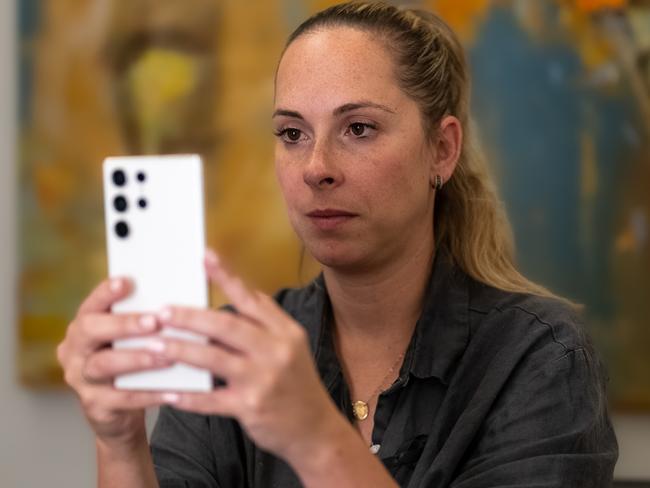New app may be game-changer in treating brain conditions
An app that can scan a patient’s eye to measure how the brain is working may be a game-changer for treatments for neurological conditions —from concussion to Alzheimer’s disease — and will be trialled across Australia.
Victoria
Don't miss out on the headlines from Victoria. Followed categories will be added to My News.
A phone app designed to screen neurological conditions – from concussion to Alzheimer’s disease – by simply scanning a patient’s eye will be trialled across Australia.
BrainEye uses a phone’s camera and artificial intelligence to analyse patient’s eye movements – tiny changes can hint at issues in our brain – and will be trialled at The Alfred in Melbourne and other hospitals across the country.
The developers hope it could be used by patients at home to track how they respond to a new treatment; manage concussions in sport and screen for signs of serious conditions, including Parkinson’s and Multiple Sclerosis, to allow earlier diagnosis.
BrainEye chief scientific officer associate professor Joanne Fielding said we can measure our heartbeat or steps, but “there’s nothing at the moment that measures how our brain works and it’s the most important organ in our body”.
“(BrainEye) is a bit of a game changer,” she said.
“We can have a snapshot of the way our brain is performing.”

She stressed BrainEye was used to identify symptoms that warrant follow-up, and not diagnose specific conditions – in the same way a thermometer can flag a high temperature but not which virus has caused the fever.
She said about “half of the brain” was involved in the circuit to move our eye, meaning disruptions to that circuit – whether through trauma or neurodegenerative disease – can change this movement.
“We can measure that aberrant movement with millisecond accuracy and tell you this isn’t okay,” she said.
“(Eye movement) tests are typically only carried out in clinical settings, and often only when it’s too late.”
They hope to recruit 500 patients with a variety of neurological conditions, including Alzheimer’s disease, Parkinson’s disease, epilepsy and multiple sclerosis, so they can analyse their scores on the 60 second test.

Prof Fielding said while the app was live after multiple studies on its use in sport – including several with major sporting codes – it was important to hold clinical trials such as this one to show doctors it can be used in a clinical setting.
Alfred Brain program director and neurologist Terry O’Brien said BrainEye was unlike anything he had access to now and that, if successful, it could offer a cheaper, less invasive test – compared to MRIs or PET scans – when needed.
“We need better ways of being able to monitor the effects … of treatments,” he said.
Patient Nick Jones, 23, began experiencing functional seizures after receiving multiple serious concussions playing sport.
He said the impact on him, his family and friends had motivated him to volunteer for the trial, hoping to be part of something that might spare others his experience.
“It’s so simple because it’s literally just an app on your iPhone,” he said.
“I do find it really, really beneficial.”


